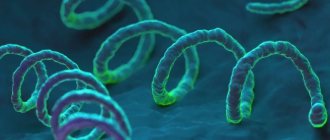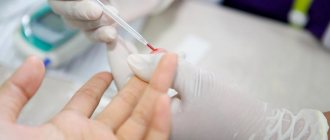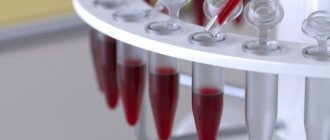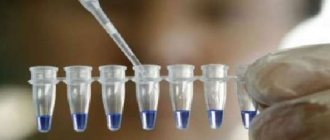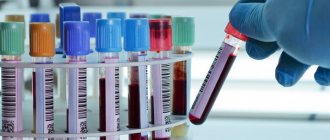Indications for the study and preparation
Analysis for bladder cancer is carried out in serological laboratories, which are located in dermatovenerological dispensaries. Blood is donated upon doctor's direction. Indications for research vary:
- unprotected intercourse, after which a rash appeared in the genital area;
- the appearance of a chancre (a hard lump similar to an ulcer). It can occur on the genitals, in the anus, on the mucous membranes of the mouth and eyes. Not accompanied by discomfort, goes away on its own on the 15-45th day;
- swollen lymph nodes;
- rashes all over the body, increased body temperature for several days;
- phimosis, balanoposthitis in men.
A blood test is taken on an empty stomach, but not earlier than 4 hours after eating. Alcohol is not allowed; for 2-3 days before donation, you should refrain from fatty foods, since the blood serum becomes cloudy after inactivation and the reaction will be impossible to take into account.
Where is blood taken for analysis?
The sampling technique involves certain nuances: blood is taken from a vein in a volume of 5 ml into a sterile glass tube or vacutainer in the manipulation rooms. It is acceptable to take blood from a finger, and in rare cases, cerebrospinal fluid. The manipulations are carried out in medical institutions, the materials are then transported to serological laboratories, where the analysis is carried out.
Interpretation and decoding
The analysis is recorded by a qualified laboratory technician. There are four types of recognition of tests for bladder cancer:
- Positive (++++) ;
- weakly positive (++);
- doubtful (+) ;
- negative (-)
Any of the non-negative results is a reason to contact specialists; even a questionable reaction should not be ignored; it may be the first sign of latent syphilis, which does not manifest clinical signs and is detected only in the laboratory. A positive and weakly positive result requires, first of all, a retake of the analysis, the patient’s medical history and examination.
Screening tests, which include breast cancer, have some disadvantages - low sensitivity for primary and tertiary syphilis and false-positive reactions.
Erroneous results on RMP
The causes of false positive reactions are:
- infectious diseases, the causative agents of which are similar to Treponema pallidum (saprophytes in the oral cavity and on the genitals);
- conditions leading to changes in metabolism, especially lipid metabolism (pregnancy, pneumonia, leprosy, cancer, myocardial infarction, artificial immunization, etc.);
- technical errors during production.
If, when donating blood, a non-negative result for bladder cancer or RPR is detected, you should first consult a venereologist. To make sure the previous analysis is correct, you will have to give blood again. It should be noted that none of these tests is the basis for making a diagnosis of syphilis, but is a reason for further examination using more sensitive, treponemal methods (RPGA, RIT, RIF).
False results
There are often cases when the Wasserman test shows the formation of antibodies, but the person does not suffer from syphilis. A false positive reaction is observed in the following diseases and conditions:
- pregnancy;
- infectious mononucleosis;
- gout;
- diabetes mellitus;
- malaria;
- measles;
- scarlet fever;
- brucellosis;
- pneumonia;
- chlamydia;
- mycoplasma infection;
- viral hepatitis;
- tuberculosis;
- malignant tumors;
- thyroiditis;
- autoimmune diseases (systemic lupus erythematosus, scleroderma, rheumatoid arthritis);
- infection with enteroviruses;
- recent vaccination;
- in elderly patients (10% of cases);
- drinking alcohol on the eve of the study;
- drug addiction.
We can conclude that the list of diseases and conditions in which false test results are noted is quite extensive. Therefore, to make an accurate diagnosis, an immunofluorescence blood test is prescribed. It allows you to more reliably detect the presence of immunoglobulins G to Treponema pallidum. A blood test is also carried out using PCR diagnostics. It shows the presence of Treponema pallidum DNA fragments in the patient. The doctor makes the final diagnosis only on the basis of a comprehensive study.
It is a screening test for mass screening of the population for syphilis.
Staging:
plasma or inactivated blood serum + special cardiolipin antigen (bovine heart extract enriched with cholesterol and lecithin). A precipitate (antigen-antibody complex) is formed, which precipitates in the form of white flakes.
RMP can also be carried out using a quantitative method with dilution of blood serum.
Advantages of the express method:
- speed of response (30-40 minutes),
a small volume of blood required for the test (2-3 drops of plasma or serum).
Sources of errors when staging RMP:
- incorrect drawing of blood from a finger (presence of air bubbles in the capillary of the pipettes);
uneven concentration of antigen in the emulsion due to insufficient mixing before use;
bacterial contamination of the emulsion;
violation of the terms and conditions of storage of plasma and serum, antigen and its emulsion, solutions;
use of contaminated test tubes, pipettes, plates, and solutions when setting up reactions.
The above errors can lead to both false negative and false positive reaction results.
After the end of therapy, RMP is diagnosed and the dynamics of the infectious process and the effectiveness of therapy are judged by the decrease in titer.
Confirmation of the effectiveness of the therapy is considered to be a decrease in titer by 4 or more times within 1 year; at the end of this period, the same specific reaction is set as during the initial examination.
What is syphilis
Syphilis is a sexually transmitted disease. It is infectious in nature, very dangerous and in most cases is severe.
The main route of infection is unprotected sexual intercourse (oral, anal, vaginal) with an infected partner.
Sometimes household transmission is recorded:
- through wounds on the mucous membranes,
- when kissing,
- through common items (especially shoes, towels, linen, comb, razor),
- during blood transfusion,
- for drug addiction through syringes,
The causative agent of the disease is Treponema pallidum, a bacterium from the spirochete family. The incubation period lasts on average. 7-10 days, less often - 21 days. It begins from the moment of infection until the formation of a chancre - a hard, compacted formation on the skin or mucous membranes.
Another sign of the disease that appears at the initial stage is enlarged lymph nodes.
In the acute course of the disease, fever and extensive rash appear. In this case, a person needs to undergo a number of diagnostic procedures, among which one of the important places is the RMP blood test.
What is syphilis and how dangerous this disease is is explained in the video:
RPR modification
Also in modern laboratories you can come across another similar name - the RPR test. This is a modern modification of precipitation in which fast plasma reagins are detected. Such reagents are called antibodies belonging to the classes of immunoglobulins G and M.
It is the RPR test (its second name is the nonspecific antiphospholipid or reagin test) that is recommended by order of the Ministry of Health of the Russian Federation for screening or initial testing for syphilis. Therefore, if you have a choice: to do RMP or perform RPR, then it is better to decide in favor of the second method.
RPR - a research method allows you to identify almost 80% of people with a primary infection and almost 100% of people who suffer from secondary syphilis or latent (latent) forms. RPR - the reaction can detect syphilis within 7 days after the appearance of primary syphiloma, for example, chancre. This can usually be done a month after infection.
Enzyme immunoassay for sero- and liquor diagnostics of syphilis
"■ } ; // U! £//-
Principle: - shhsha
T. pallidum are sensitized to the surface of the solid phase carrier (panel wells). The test serum is added. In the presence of antibodies against T. pallidum, an antigen-antibody complex is formed, bound to the surface of the carrier. At the next stage, anti-species serum (against human immunoglobulins) labeled with an enzyme (peroxidase or alkaline phosphatase) is poured into the wells. Labeled antibodies interact with the antigen-antibody complex, forming a new complex. To identify it, a substrate solution (5-aminosalicic acid) is poured into the wells. Under the action of the enzyme, the substrate changes color, which indicates a positive result.
When using ELISA, the simultaneous use of its three options is considered optimal:
- identification of total AT (CAT)
subsequent differentiated determination of treponeme-specific IgM and IgG.
The appearance of antisyphilitic antibodies occurs in accordance with the general patterns of the immune response. IgM first appears 2-4 weeks after infection and disappears in untreated patients after about 18 months; in the treatment of early syphilis after 3-6 months; later - in a year. As the disease progresses, the synthesis of IgG begins to predominate, which appears at 4 weeks after infection, reaches higher titers and persists for a long time even after clinical cure.
Sources of errors when using ELISA test systems:
- violations of blood collection techniques, conditions of transportation and storage of test systems and samples.
poor quality work of laboratory technicians,
any deviations from the instructions for use of the test system,
malfunction of tools and devices,
Latest update of the description by the manufacturer 31.07.1996
Filterable list
What is blood for bladder cancer and how to get tested
Quite often in hospitals during the first procedure they ask what blood is for bladder cancer and how long to do it. This procedure is performed within one day and upon completion you can already find out the results of the analysis.
Taking a blood test for bladder cancer is no different from a regular blood draw.
You should come to the procedure on an empty stomach. You are allowed to drink plain water (without sweeteners and without gas).
On the eve of the analysis, it is necessary to refrain from drinking alcohol, spicy foods, fried foods - all this can reduce the accuracy of the procedure.
Inform your specialist in advance about taking any medications.
— the active ingredients of medications can also reduce the accuracy of the analysis. You should refrain from intense physical activity before undergoing this procedure.
In addition to the above, it is extremely important to try not to be nervous. Yes, a lot depends on the test results, but if you get too nervous, you’ll have to retake the tests
To calm down, drink a glass of plain water - a sufficient amount of fluid in the body helps stabilize normal well-being.
A blood sample is taken from the patient, with which certain manipulations are then carried out: special antigens are added, which, in the presence of syphilis, will lead to the destruction of red blood cells (hemolysis). This procedure for the patient is no different from the usual blood sampling for a general analysis.
note
Currently, in medical practice, an antibody titer from 1:2 to 1:800 indicates the presence of syphilis.
As a result of examining a blood test for a microreaction, positive, negative or false-positive answers are possible.
Positive result
indicates that syphilis pathogens have been identified in the patient’s body. After this, additional tests are performed.
False positive result
occurs when other diseases are detected in the patient: malignant tumor, diabetes, AIDS, hepatitis, gout and others.
Negative result
indicates that a person does not have syphilis. To confirm the absence of the disease, this test is repeated after a certain period of time: if the first blood test for precipitation microreaction was carried out at an early stage of the disease (less than a week has passed after infection), then the pathogens of syphilis may not have yet provoked the production of antibodies, and accordingly, the test could not notice.
Syphilis is considered the most unpleasant disease that has a depressing effect on a person’s personal life. This dangerous infectious disease causes a lot of serious consequences. Modern medicine has several methods for diagnosing syphilis, one of which is a blood test for bladder cancer. So, in abbreviated form, they call the microprecipitation reaction.
During hospitalization or preoperative examination, the patient should be aware of the blood test for bladder cancer, that this is a routine procedure that everyone must undergo.
The principle of microprecipitation is the detection of cardiolipin antigen located in the membranes of the causative agent of syphilis, Treponema pallidum and other microorganisms from the genus Treponema of the order Spirochaetales. The reaction is based on the phenomenon of precipitation - precipitation of the mixture and the reagent. If a precipitate forms, the test is considered positive. A reaction with the formation of a precipitate is considered positive.
Interpretation and interpretation of results
Deciphering a blood test for bladder cancer involves issuing not a quantitative, but a qualitative result: “positive” or “negative” - antibodies are detected or not detected.
In the case of primary syphilis, this reaction can be positive in 60% of cases or higher. In the case of secondary syphilis, when there are many antibodies in the body, the reaction becomes reliably one hundred percent. If syphilis occurs latently or latently, but for quite a long time, then the microprecipitation reaction will be reliable in 80% of cases.
With tertiary syphilis, the range of values can vary - from 37% to 94%. After all, if syphilis lasts for a very long time, literally years, then antibodies for various reasons may disappear from the blood, or stop being produced.
Since the microprecipitation reaction is a screening method, the following very important circumstance must be taken into account. This reaction is manifested by the formation of immune complexes-precipitates only if the antibodies and antigen are in the blood in strict proportions; there should be just enough of them so that the antibodies completely bind to the entire amount of antigen and there is no excess in the solution of any of the reagents.
If there are significantly more antibodies, then the reaction may not occur at all. This phenomenon became known during the study of congenital syphilis. Babies with a congenital infection have so many antibodies in their blood that the reaction simply does not occur.
That is why the interpretation of the results of bladder cancer in infants should be approached very carefully.
What diseases can cause false positive results? Their list is quite large:
- systemic connective tissue diseases and rheumatic lesions;
- pregnancy (uncommon);
- gout and hyperuricemia;
- chronic alcoholism;
- diabetes;
- , since mycobacteria and Treponema pallidum have similar antigens;
- intravenous drug addiction;
- lymphocytic tonsillitis or;
- other viral and bacterial infections (viral hepatitis or enteroviral diarrhea, scarlet fever, measles);
- viral or bacterial pneumonia;
- autoimmune thyroiditis;
- elderly and senile age.
Also, this reaction can be a false positive after various vaccinations and vaccinations.
However, if the microprecipitation reaction or its more advanced analogue - RPR - is negative, then this cannot unambiguously indicate the absence of a syphilitic infection. A patient can become infected with syphilis literally two or three days, a week or two before the examination, and then the antibodies in the blood simply will not have time to appear. This condition is called seronegative early syphilis. The completely opposite situation is also possible, when the patient has been ill for 10 or 20 years and has late tertiary syphilis with the absence of antibodies in the blood plasma.
Procedure for conducting the study
What is this
What is
blood
test for bladder cancer and how is it done?
For the study, venous blood
, fluid oozing from rashes on the mucous membrane or lymph node puncture is taken from the patient. The choice of biomaterial is determined by the doctor.
Get tested
RMP should be taken on an empty stomach. In this case, at least 8-10 hours should pass since the last meal.
Before the analysis, the patient is allowed to drink still mineral water in small quantities.
The day before the study, it is necessary to exclude spicy, fatty and salty foods, and alcoholic beverages from the diet.
Indications
An analysis with cardiolipin antigen is prescribed in the following cases:
- if the patient has unprotected sexual contact with casual partners;
- during household contacts with patients with syphilis;
- with symptoms of the primary and secondary stages of syphilis (chancres, rashes on the body);
- if you suspect neurosyphilis (mental and neurological disorders);
- children born to infected women;
- to monitor the effectiveness of antisyphilitic therapy.
This test is not always informative in advanced (tertiary) forms of pathology. In the later stages of syphilis, antibody production is significantly reduced.
A test with cardiolipin antigen must be taken during pregnancy. In addition, such a study is required for donors and people applying for a medical certificate.
If RMP or RPR is positive
Of course, what worries people the most is if bladder cancer is positive.
In this case, it is necessary to carry out additional confirmatory tests, as discussed above. If the subject of choice is an enzyme immunoassay and a passive hemagglutination test or RPHA, then their specificity is much higher and is 100% with a sensitivity of 95%. But even these additional methods can also give a false positive result, especially in the case of concomitant inflammatory diseases, as well as autoimmune processes. That is why in clinical practice it is necessary to confirm the diagnosis of syphilis using two additional methods. This may be an immunofluorescence or immobilization of syphilis pathogens (RIBT) reaction. But these studies are expensive and are used infrequently.
It is possible to use the complement fixation reaction (CFR), which uses a specific treponemal antigen. An immune blot is indicated, which helps in doubtful cases with an unclear clinical picture. Finally, the polymerase chain reaction comes to the rescue, with which it is possible to determine the presence of pale spirochete DNA in the patient’s body.
Possible deviations
Let's look at the transcript of the analysis. The severity of a positive reaction is indicated in the form with the test results by “+” signs. The following test data are considered deviations from the norm:
- “+”—a questionable result (it is recommended to retake the test).
- “++” is a weakly positive reaction.
- “+++” is a positive result.
- “++++” is a sharply positive test.
What to do if the cardiolipin test gives positive results? The diagnosis of syphilis is usually not made solely by the Wasserman reaction. In this case, doctors always prescribe additional tests.
This test allows us to detect the primary stage of syphilis in 70% of cases, and shows the secondary form of the disease in 100% of cases. However, positive test results do not always indicate infection with Treponema pallidum. Many factors can influence the data from this analysis. They will be discussed further.
How is syphilis diagnosed?
Diagnosis of the disease should always be based on reliable and irrefutable clinical manifestations:
- specific manifestations on the skin and mucous membranes;
- anamnesis data (presence of sexual intercourse in a certain period of time);
- laboratory test results (RMP, RPR).
RPR modification
RPR (plasma reagent reaction) is also a non-treponemal test for diagnosing syphilis; in fact, it is an analogue of RMP (European method), but can also be performed with blood plasma. RMP (plasma test) is allowed, but is considered an express method. It is carried out faster in time and is considered reliable, but in doubtful cases it is better to turn to the analysis of RMP from inactivated serum.
Information!
Inactivation - placing human serum in a thermal bath for 30 minutes. It is not required for RPR diagnostics.
